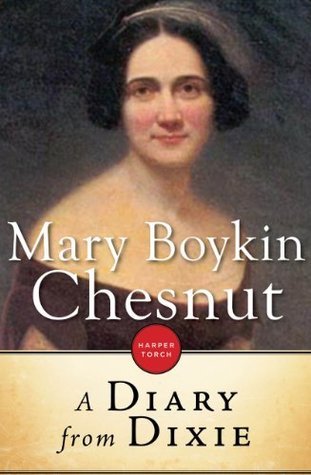What do you think?
Rate this book


A Diary from Dixie is the Civil War diary of Mary Boykin Chesnut, society matron and wife of United States senator and Confederate general, James Chesnut, Jr. As an active participant in her husband’s career, accompanying him to postings in Montgomery, Richmond, Charleston, and Columbia, Chesnut became an eyewitness to many important events of the war, and, despite being a member of the privileged class, managed to convey the Confederacy’s struggle from different points of view.
A Diary from Dixie is considered by many to be the most important work produced by a Confederate author. Filmmaker Ken Burns made extensive use of Chesnut’s diary in his documentary series The Civil War, and an annotated version of it, published by the historian C. Vann Woodward as Mary Chesnut’s Civil War, won the Pulitzer Prize for History in 1982.
HarperTorch brings great works of non-fiction and the dramatic arts to life in digital format, upholding the highest standards in ebook production and celebrating reading in all its forms. Look for more titles in the HarperTorch collection to build your digital library.
111 pages, Kindle Edition
First published January 1, 1905
I used to think of elite Southern women as apathetic. I imagined Southern belles sitting in ornate parlors, enjoying their comfortable lifestyles, nearly oblivious of the Civil War raging in their backyards. I have come to learn that this is far from the truth. In her meticulously written account, A Diary From Dixie, Mary Chesnut is a prime example of a sophisticated woman working hard for the Confederacy, and her diary is a testimony to others like her. Every page of Mary Chesnut’s diary expresses a passion for her cause and her work. During one of her many fevers she still thought of the needy soldiers: “My small ailments in all this comfort set me mourning over the dead and dying soldier I saw in Virginia. How feeble my compassion proves after all.” There is no doubt that her tireless volunteerism was an example to Southern women and her diary has become a gem for scholars and students of the Civil War.
Although her diary is a scholarly treasure, it is not fit for armchair reading. From the beginning Mary Chesnut was clear about her purpose, “From today forward I will tell the story in my own way.” Accuracy was essential to the stated intention of her account: “These memoires pour servir may at some future day afford facts about these times and prove useful to more important people than I am.” Thus she spends much time on politics, biography, and current events. She wanted to write an account of the Civil War, not a novel. What she set out to do, she accomplished. A Diary From Dixie is one of the most valuable and often quoted sources for studying the Civil War.